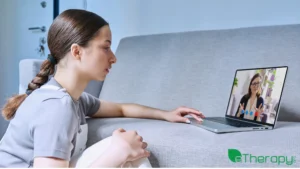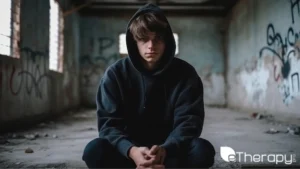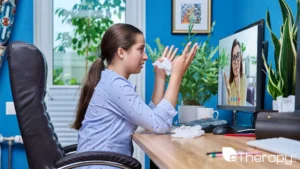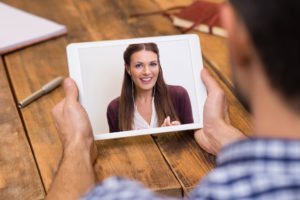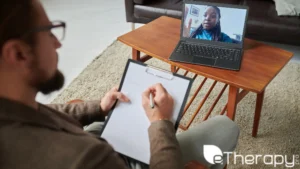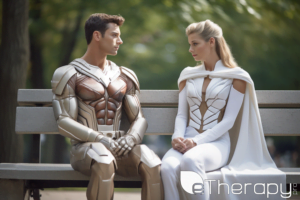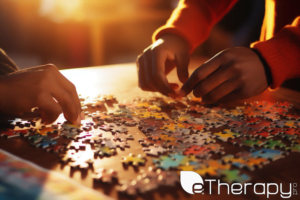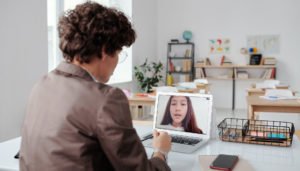In a digital age marked by the relentless quest for the next big thing, TikTok has emerged as a revolutionary force, rapidly transforming how content is both created and consumed. Its meteoric ascent to popularity is a testament not only to its unique platform design but also to its alignment with modern consumers’ appetite for quick, easily digestible content.
Yet, as we celebrate this new age of digital communication, it is essential to probe deeper, moving beyond the captivating dance routines and humorous skits. We need to explore what this shift means for our cognitive processes and mental health. Science has long shown that the way we consume information directly influences our brain’s wiring – a concept known as neuroplasticity. When we consistently expose our minds to rapid, fragmented bursts of information, it conditions our brains to process and react to information in a certain way. Over time, this can influence attention spans, decision-making abilities, and even emotional responses.
But TikTok, and platforms of its ilk, present another layer of complexity. While they democratize content creation, allowing everyone to have a voice, this very strength can become a double-edged sword. The platform becomes rife with misinformation, as there isn’t always a rigorous fact-checking process in place. For a generation turning increasingly to such platforms for education and guidance, the dangers of partial or incorrect knowledge become all too real.
Moreover, in a world where every second video offers a new perspective on health, wellness, or even diagnosis, there’s an increasing tendency for individuals to bypass medical professionals. Instead, they rely on bite-sized information, often leading to self-diagnosis based on anecdotal evidence rather than clinical expertise.
This article delves into these nuances, blending neuroscience with real-world implications. We’ll explore the cognitive shifts prompted by rapid content consumption, the risks of an ‘information age’ replete with misinformation, and the perils of simplifying complex health narratives.
Rapid Content:-The TikTok Effect on Cognitive Functions
In recent years, the digital realm has transformed, with platforms like TikTok leading the charge. As users are engulfed in a whirlwind of short, dynamic videos, one can’t help but ponder the repercussions these rapid content platforms might have on our cognitive faculties. Within this section, we’ll delve into the nuances of how TikTok could be tweaking the very way our brains operate.
A Changing Attention Span
Traditionally, humans have shown the ability to focus on tasks for extended periods. However, with the invasion of quick snippets of entertainment and information, our attention spans may be undergoing a shift. TikTok, with its fast-paced content, encourages rapid consumption. In a matter of seconds, one can witness a dance, a life hack, and a comedy skit. While this offers variety, it also poses the risk of cognitive overload. Our brains, trying to process a barrage of information, can find it challenging to then concentrate on more extended, in-depth materials. This accelerated mode of consumption might be leading us toward a future where deep reading or prolonged focus becomes taxing.
Dopamine and the Quest for Instant Gratification
The allure of instant feedback is undeniable. Each like, comment, or share on TikTok can induce a burst of dopamine, a neurotransmitter associated with pleasure and reward. As users upload content and await reactions, they’re caught in a loop, constantly seeking that dopamine high. Over time, this might condition our brains to crave instant validation, diminishing our capacity for patience and long-term gratification. If left unchecked, this quest for immediate rewards could translate to other life aspects, from work ethic to interpersonal relationships, potentially undermining our resilience and persistence.
Rapid Content:- Disrupting Sleep, Disrupting Minds
We’ve all been there – mindlessly scrolling through TikTok videos, promising ourselves “just one more,” only to realize hours have slipped by. The captivating nature of TikTok, coupled with the blue light emitted by screens, can sabotage our sleep cycles. Sleep, a cornerstone of cognitive health and mental well-being, when disrupted, can lead to a host of issues. From reduced attention span, memory lapses to heightened stress levels, the ramifications are manifold. The link between sleep disturbances and mental health challenges further underscores the need for conscious digital consumption, especially in the hours leading up to bedtime.
The Mental Health Implications of Rapid Content
The digital age, especially platforms like TikTok, brings with it a plethora of experiences – some uplifting and others, potentially distressing. Our mental well-being is closely intertwined with our online interactions, and it’s crucial to acknowledge both the boons and banes these platforms present.
Navigating the Labyrinth of Comparison
While TikTok offers a stage for creativity and individual expression, it also inadvertently fosters a culture of comparison. Scrolling through the app, one can’t help but see someone’s seemingly perfect day, a lavish vacation, or a flawlessly executed dance routine. Though these moments are mere curated glimpses, viewers often juxtapose them against their own realities, leading to feelings of inadequacy or unfulfillment, which can impact mental health.
As Carl Jung once said,
The shoe that fits one person pinches another; there is no recipe for living that suits all cases.
TikTok, with its myriad experiences, resonates with this sentiment, reminding us of the diverse tapestry of human experiences.
Celebrating TikTok’s Bright Spots
Beyond the potential pitfalls, TikTok is a canvas of inspiration. The platform celebrates diversity, encourages learning, and provides an avenue for users to share their passions. From cooking demos, and DIY crafts, to empowering personal stories, it facilitates a broad spectrum of expression. Especially during isolating periods, like the pandemic lockdowns, it served as a beacon of connectivity and camaraderie. The joy of discovering a new hobby, finding a supportive community, or even laughing at a silly dance, underscores the potential positive impact of such platforms on mental health.
The Peril of Misinformation and Self-Diagnosis
As we voyage deeper into the digital realm, the waters grow murkier. Platforms like TikTok, with their emphasis on succinct, engaging content, inadvertently make it a playground for misinformation. The implications are far-reaching, particularly when users start to take this fragmented knowledge as gospel truth.
Partial Knowledge: A Dangerous Game
In our thirst for quick answers and instant solutions, the abbreviated content on TikTok can sometimes mislead. Bite-sized videos, though entertaining, rarely provide a comprehensive view of complex topics. When users act on such fragmented information, without delving deeper or seeking corroborative sources, they tread on perilous ground. Whether it’s a DIY home remedy, a financial “hack,” or a trending diet, the risks of misinterpreting or misapplying this partial knowledge are manifold.
Self-Diagnosis: Oversimplifying Complex Health Issues
Sharing personal health stories on platforms like TikTok has its virtues. It can be an empowering experience for many, providing a platform for their voice, fostering community, and significantly demystifying stigmas, especially around mental health. However, the other side of the coin presents challenges. While these anecdotes can be enlightening, they can also inadvertently prompt viewers to hastily conclude that they share the same conditions based on a mere video.
Diagnosis is not the end, but the beginning of practice. – Martin H. Fischer
Relying on fragmented information from trending videos can oversimplify and overlook the individual nuances inherent in health issues. It’s always vital to remember the importance of professional consultation. Platforms like eTherapyPro stand as trusted conduits, linking individuals with experts who can offer genuine, comprehensive guidance.
Information Responsibility in the Digital Age
In an age awash with information, discernment becomes our strongest ally. As consumers of digital content, it’s our responsibility to fact-check, scrutinize, and critically engage with what we see. Relying solely on platforms like TikTok for pivotal decisions is a dicey venture. As we navigate these platforms, let’s pledge to do so responsibly, embracing the entertainment while maintaining a discerning eye.
Conclusion of Rapid Content
Platforms like TikTok, brimming with creativity and community, undeniably reshape our cognitive functions and influence our mental well-being. While they usher in unique modes of learning and connection, they also pose challenges in attention spans, comparison tendencies, and the hazards of misinformation. As we navigate this digital era, a balanced approach to content consumption is paramount. Let’s appreciate these platforms but remain critical thinkers, always valuing professional guidance over snippets of viral content. Consume responsibly and never hesitate to seek expert help when grappling with crucial life matters.
